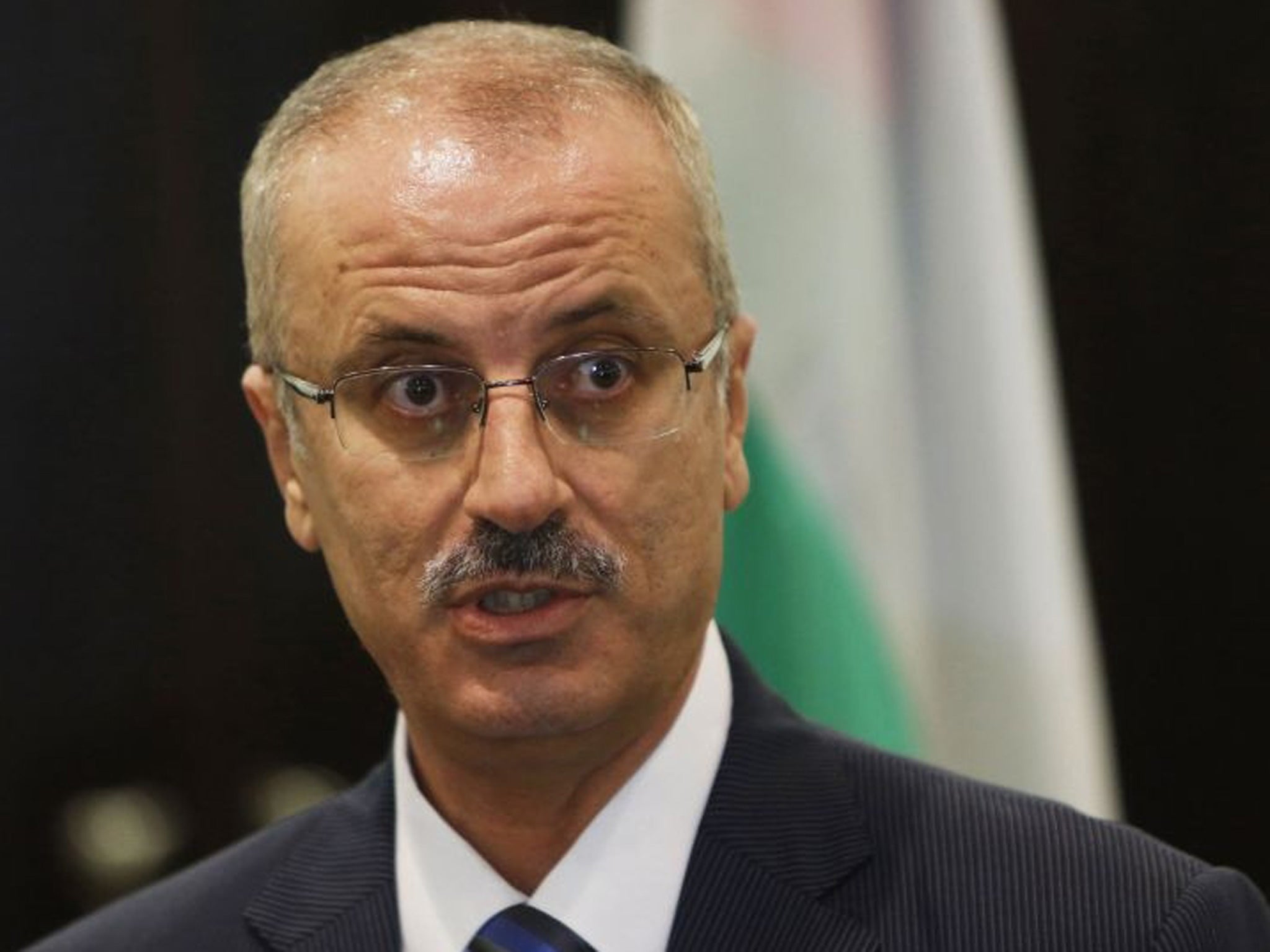Palestinian PM Rami Hamdallah offers to quit just two weeks after his appointment
Reports talk of rows with members of administration over scope of his role

Your support helps us to tell the story
From reproductive rights to climate change to Big Tech, The Independent is on the ground when the story is developing. Whether it's investigating the financials of Elon Musk's pro-Trump PAC or producing our latest documentary, 'The A Word', which shines a light on the American women fighting for reproductive rights, we know how important it is to parse out the facts from the messaging.
At such a critical moment in US history, we need reporters on the ground. Your donation allows us to keep sending journalists to speak to both sides of the story.
The Independent is trusted by Americans across the entire political spectrum. And unlike many other quality news outlets, we choose not to lock Americans out of our reporting and analysis with paywalls. We believe quality journalism should be available to everyone, paid for by those who can afford it.
Your support makes all the difference.A fortnight after being appointed as the Palestinian Authority's new Prime Minister, Rami Hamdallah offered to his resignation today.
It was not immediately clear why Mr Ramdallah, a former university academic offered to resign, although some reports suggested that he had been involved in rows with members of the administration over the scope of his role. Mr Ramdallah is understood to have quickly grown frustrated by the limitations of the job - which in Palestinian politics is largely as a figurehead. The real power rests with the PA President, Mahmoud Abbas.
Mr Ramdallah is also understood to believe that a number of officials from Mr Abbas's Fatah party have been working to undermine his authority. Like Mr Fayyad, Mr Ramdallah does not have his own political base, and serves as an independent.
One Palestinian official told the AFP that Mr Hamdallah had offered to step down "following disagreements with his two deputies", while Reuters reported that the resignation resulted from a "dispute over his powers".
It was unclear yesterday whether Mr Abbas had accepted the resignation.
Mr Ramdallah replaced the widely-respected Salam Fayyad, who left office in April. Mr Fayyad's tenure as prime minister was blighted not just sniping at his policies by other Palestinian government officials, but also by his almost constant threat of resignation when the political tide was against him.
It is thought that Mr Abbas finally lost patience with Mr Fayyad. However, yesterday's move by the incumbent head of government will come as a blow to Mr Abbas's authority as he deals with US Secretary of State, John Kerry's, latest Middle East peace initiative and efforts to reconcile the divided Palestinian leadership.
On taking office, Mr Ramdallah said that he would strive to help unite the two main Palestinian factions, Fatah, which largely controls the West Bank, and Hamas in Gaza. The prime minister said he would stand aside once a unity government had been formed. The sides agreed in principle to a unity administration in May, but many suspect that the divisions between the two sides are too deep to arrive at any conclusive settlement.
Join our commenting forum
Join thought-provoking conversations, follow other Independent readers and see their replies
Comments